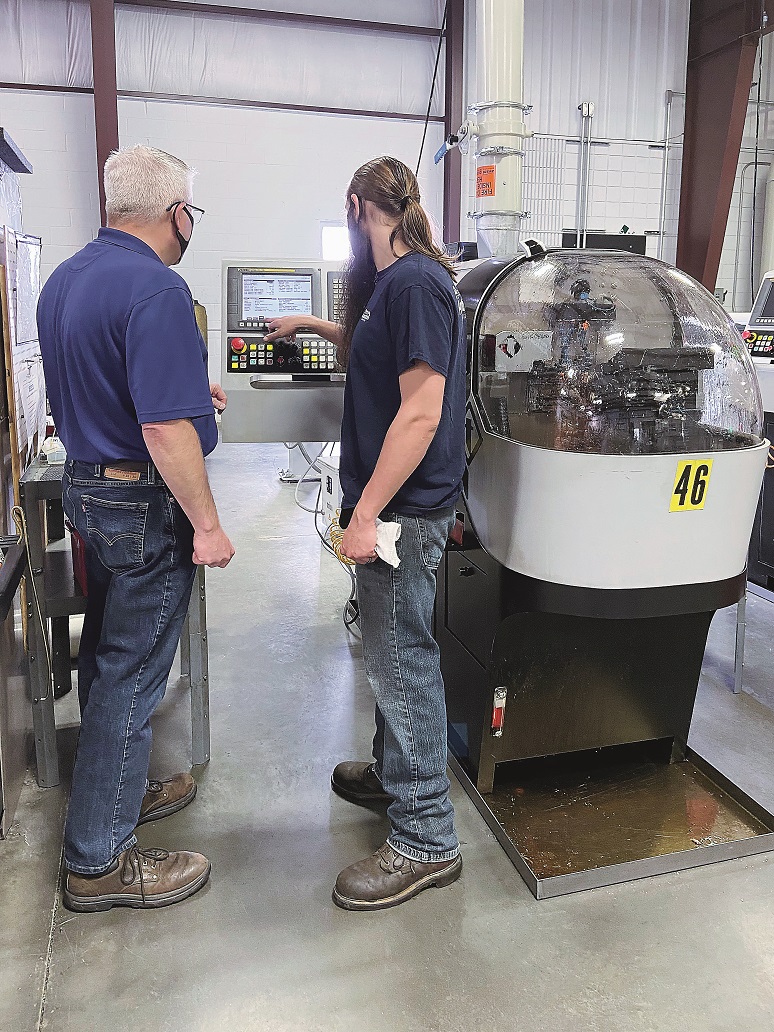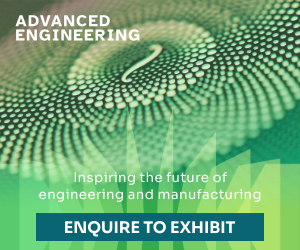As the Coronavirus (Covid-19) pandemic pushes healthcare services to their limits, the Tornos SwissNano is helping a US-based subcontract machine shop, Petron Automation to supercharge its production of a complex, tight-tolerance component for the much-needed and lifesaving ventilators.
Established 40 years ago by Mike Petro Sr., the business began as a secondary process shop supporting the local eyelet industry with such applications as broaching, piercing, edging and slotting. Since then, Petron Automation has evolved as a go-to source for Swiss-type sliding head machining. CNC machines opened new horizons for the business and, having established itself as a highly reliable medical industry partner, the 24-member Petron Automation team knows its way around CNC Swiss machining.
“Our greatest strength is producing complex, tight-tolerance parts that require repeatability. With this expertise, we deliver the reliability our customers expect and the confidence that they’ve come to the right place when they come to us,” says Paul Thornberg, Petron Automation Vice President of Business Development. “Our goal is to be an industry leader, providing the highest quality products and service to our customers. That’s our quality statement.”
With that commitment and proven expertise, it’s no surprise that manufacturers of small, challenging medical device components turn to Petron Automation for the quality required in the risk-averse medical sector. By the same token, Petron Automation turns to Tornos for highly precise manufacturing solutions including four SwissNano 4s, two EvoDECO 32s, two EvoDECO 16s, two MultiSwiss 6x32s, and three DECO 13s.
In early April 2020, after the Coronavirus (Covid-19) pandemic reached US shores, the World Economic Forum reported that while 77,000 new ventilators were enough to meet the entire global market demand in 2018, New York City alone forecasts a need for 30,000 additional machines. By April, some ventilator manufacturers had already boosted their production by 30 to 50 percent but by themselves saw no possibility of delivering the required 500 or 1,000 production growth needed. Presented with the opportunity to help its customer defy those dire predictions, Petron Automation rolled up its sleeves and made it happen.
“Obviously, we had been paying attention to what was happening around us,” Thornberg said, “and we knew the need for parts for ventilators and blood pumps. In early March, we were at the end of our first-quarter 2020 order for a specific ventilator part for an important customer, who told us, ‘We’re going to have a huge uptake in these parts.”
At that point, Petron Automation had been producing 5,000 ventilator armatures per week for that customer, who asked the business to ramp up to 20,000 parts per week. The acclaimed SwissNano sliding headstock lathe, the micro and nano precision champion helped the business double its production capacity for that armature within a week. Machined from bars of 430FR stainless steel, the part has critical dimensions +/- 0.0088mm.
“It’s got some tight tolerances and we must maintain very sharp edges with maximum edge breaks of 0.0127mm with surface finish under Ra10μm, and we are producing 2,000 pieces per machine, 10 hours per day, holding those tolerances,” he explained.
To reach those ambitious targets, Petron Automation turned to two of its four Tornos SwissNano machines, which were already set up and ready for ramp-up. “We didn’t stop the presses, so to speak, but we reacted to the customer’s need within one and a half days and met it within a week. This customer is very important to us. They have a very large machining presence in their own facility, but they send us their really challenging, high-precision, tight-tolerance parts—the parts for which they either don’t have the technical knowledge or the necessary equipment,” Thornberg said.
That ramp-up truly put the shop’s SwissNano 4 machines to the test. “The reliability of these machines allow us to run these parts lights out with very little deviation from tolerances. One of our SwissNanos ran for 23.9 hours on May 13–14, and the other ran for 23.4 hours on the same day. That’s a testament to the capability of the machines.”
Thornberg, who has more than 30 years of manufacturing experience, knows that the combination of state-of-the-art technology and Petron Automation’s passion for customer service are an unbeatable combination. “There’s a certain level of pride, knowing that we are helping out during a public health crisis by providing our customer with a part that helps save lives,” he said. “At the same time, though, this was something that Petron would do for any of its customers that need a call to action. Because of our people, our expertise, and the equipment that supports us, we would go to any extraordinary lengths to satisfy our customer’s needs.”





